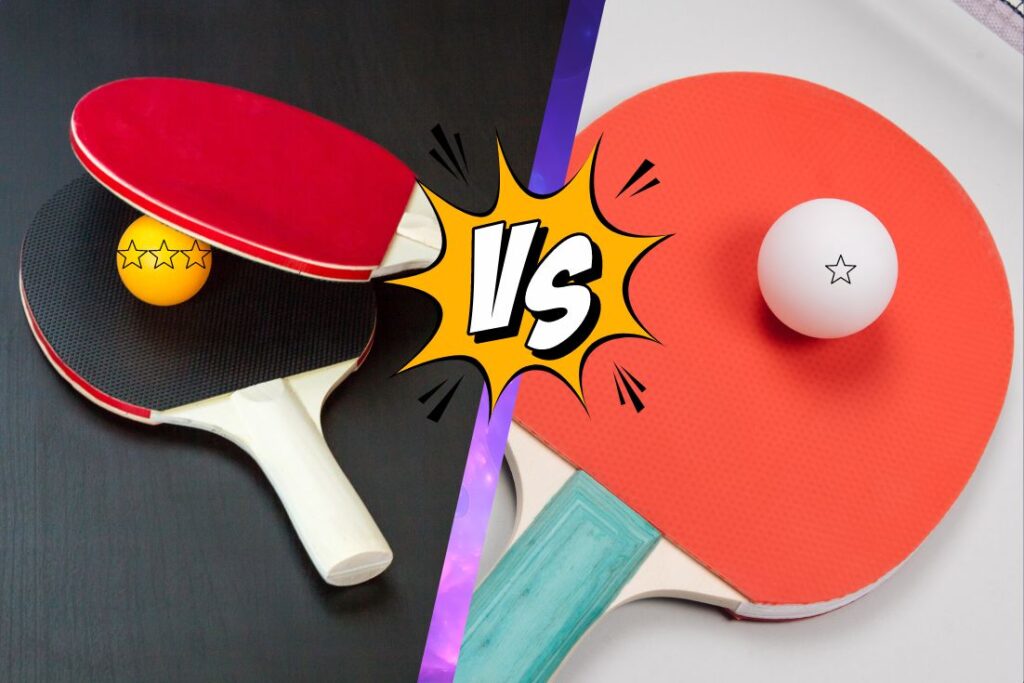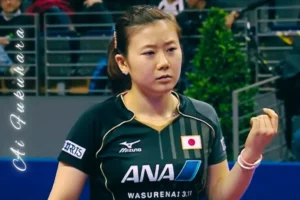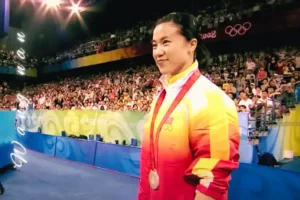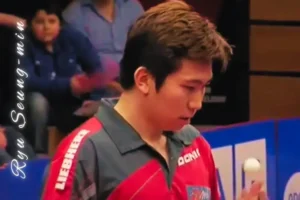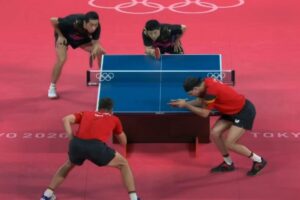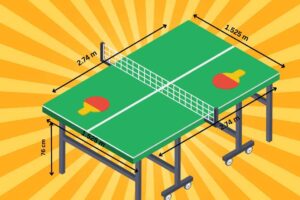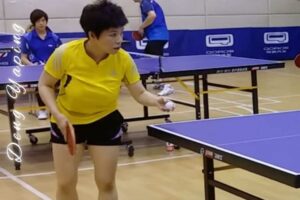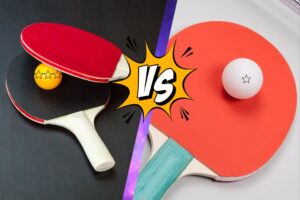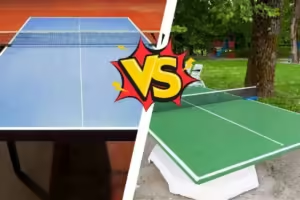Understanding the difference between 3-Star vs. 1-Star ping pong balls can significantly impact your playing experience. 3-Star ping pong balls are the gold standard in competitive play, known for their superior durability, consistency, and perfect bounce. These balls provide precision and control, making every rally a true test of skill.
On the other hand, 1-Star ping pong balls are ideal for casual play and practice. While they may not offer the same level of consistency and longevity, they are perfect for honing your skills and enjoying a fun game with friends.
Our blog will delve into the nuances of the 3-star vs. 1-star ping pong balls debate, exploring factors like quality, bounce consistency, and longevity. By examining these aspects, readers can make informed decisions tailored to their preferences.
Understanding the Star Rating System on Ping Pong Balls
Ping-pong balls are rated with a star system, denoting their quality and performance. The system ranges from 1 to 3 stars, with 3-star balls considered the highest quality and most durable, suitable for professional play.
The star rating reflects factors like roundness, bounce, and overall construction quality. Higher-rated balls undergo stricter quality control measures, ensuring superior performance.
The star rating is crucial for assessing the quality of ball. 3-star balls are preferred in competitive settings for their consistency and durability, while 1-star balls may be more suitable for recreational play.
Characteristics of 3-Star Ping Pong Balls
(i) Attributes of 3-Star Balls: 3-star ping pong balls are distinguished by their superior roundness, consistent bounce, and high-quality construction. These attributes ensure a more predictable and reliable performance during play.
(ii) Why 3-Star Balls are Highest Quality: The 3-star rating signifies rigorous quality control, indicating that these balls meet the highest standards in terms of manufacturing precision, materials used, and overall durability. This makes them suitable for professional and competitive play.
(iii) Professional and Tournament Use: 3-star balls are the preferred choice in professional and tournament settings due to their reliability and adherence to standardized performance characteristics. Players at the highest level trust 3-star balls for their consistency and quality.
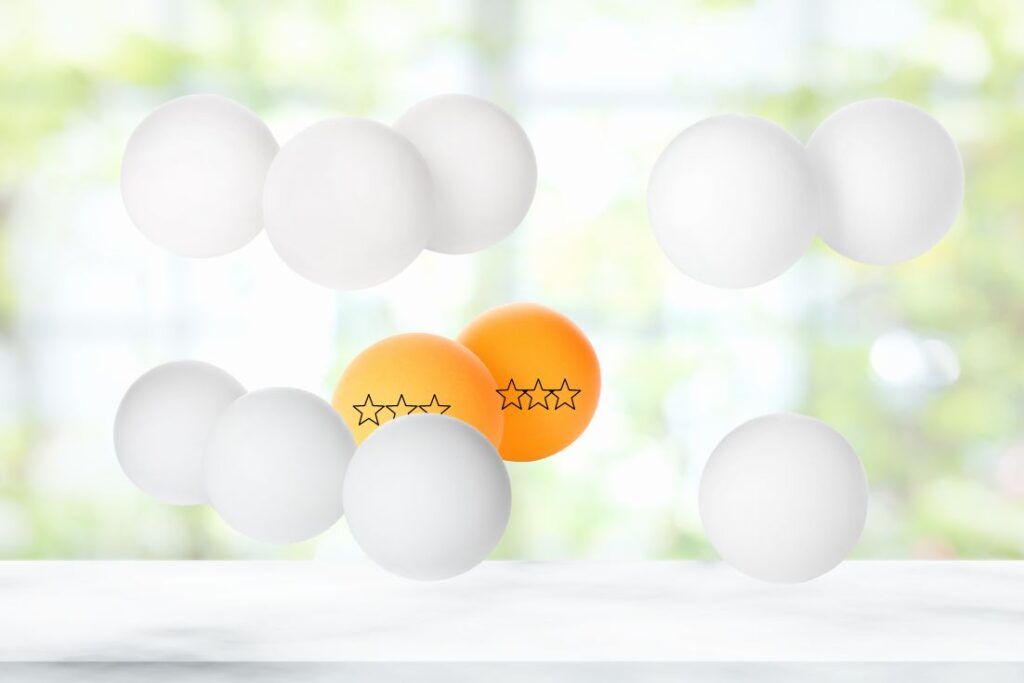
Performance Comparison: 3-Star vs. 1-Star Ping Pong Balls
(i) Bounce and Consistency: 3-star balls offer a more consistent bounce due to stringent quality control, contributing to a superior playing experience. In contrast, 1-star balls may have variations in bounce, affecting game predictability.
(ii) Spin and Control Capabilities: 3-star balls generally provide better spin and control, enhancing the skill level required for advanced techniques. 1-star balls may have limitations in spin capabilities, impacting precision in shots.
(iii) Durability and Longevity: 3-star balls are designed for durability, making them suitable for extended play and tournament use. 1-star balls, while economical, may have a shorter lifespan and are ideal for casual play.
(iv) Player Preferences: Advanced players often prefer 3-star balls for their consistent performance, while beginners and casual players may find 1-star balls suitable for practice and recreational games.
Price Considerations: 3-Star vs. 1-Star Ping Pong Balls
Generally, 3-star ping pong balls are more expensive than 1-star balls due to higher quality standards and materials used in production. The price difference can vary, but 3-star balls tend to be on the higher end.
While 3 star balls offer superior performance, 1 star balls provide a more budget-friendly option. Players on a tight budget may find 1-star balls sufficient for casual play, offering reasonable value for money.
Choosing between 3-star and 1-star balls can influence overall gameplay costs. Regular players may opt for 3-star balls for enhanced quality, impacting their budget differently than those prioritizing cost savings.
Player Skill Level and Ball Choice
Selecting the right ping pong ball is crucial and varies with player skill levels. Beginners often benefit from 1-star balls, which provide a slower pace, aiding in skill development. Advanced players tend to prefer the faster and more controlled play of 3-star balls.
Player skill level significantly influences the choice between 1-star and 3-star balls. Novice players may find the slower 1-star balls easier to control, while skilled players appreciate the responsiveness and consistency of 3-star balls.
1-star balls play a vital role in player development by offering a controlled and less challenging environment. They allow beginners to focus on mastering fundamental techniques before advancing to higher-level gameplay.
The Impact of Playing Environment on Ping Pong Balls
The choice between 3-star and 1-star ping pong balls is influenced by the playing environment. Indoor settings, with controlled conditions, favor the precision and speed of three star balls. In contrast, outdoor play often benefits from the slower pace and wind resistance of one star balls.
When playing indoors, Three-star balls excel in responsiveness and consistency. Outdoors, where wind can affect ball trajectory, one-star balls offer better control and stability, making them suitable for various weather conditions.
The environment significantly impacts ball performance. Indoor play emphasizes the technical aspects of the game, while outdoor conditions may demand greater adaptability, favoring 1-star balls.
Tournament and Competitive Play with Ping Pong Balls
The International Table Tennis Federation (ITTF) governs tournament play and mandates specific standards for ping pong balls. According to ITTF regulations, balls are rated on a scale of 1 to 3 stars, with 3-star balls meeting the highest quality standards.
ITTF-sanctioned tournaments predominantly utilize 3-star balls. These balls provide consistent bounce and high quality, ensuring a level playing field for competitive matches.
3-star balls offer superior performance and durability, they may be less forgiving for beginners. 1-star balls, while less durable, can be suitable for training and development, providing players with a different feel.
Player Testimonials and Perspectives on 3-Star and 1-Star Ping Pong Balls
Many advanced players favor 3-star ping pong balls for their superior quality, consistent bounce, and durability. Testimonials highlight that these balls contribute to precise shots and a more professional playing experience.
Novice and casual players often appreciate 1-star balls for their softer feel and affordability. Testimonials suggest that these balls are suitable for recreational play and practice sessions.
Players adapt to ball differences by adjusting their playing style, spin, and timing. Training with both ball types helps in developing versatile skills.
In Closing
In the debate of 3-Star vs. 1-Star ping pong balls, choosing the right one depends on your playing needs. 3-Star ping pong balls offer unmatched quality, consistency, and durability, making them ideal for serious players seeking precision and control. These balls enhance competitive play, turning every match into a true showcase of skill. Conversely, 1-Star ping pong balls are perfect for casual play and practice, providing a fun and accessible way to enjoy the game without the need for professional-grade performance.
Understanding the differences between 3-Star vs. 1-Star ping pong balls helps you make the best choice for your table tennis experience. Whether aiming for championship-level play or just enjoying a game with friends, the right ball can elevate your passion and enjoyment for ping pong.
